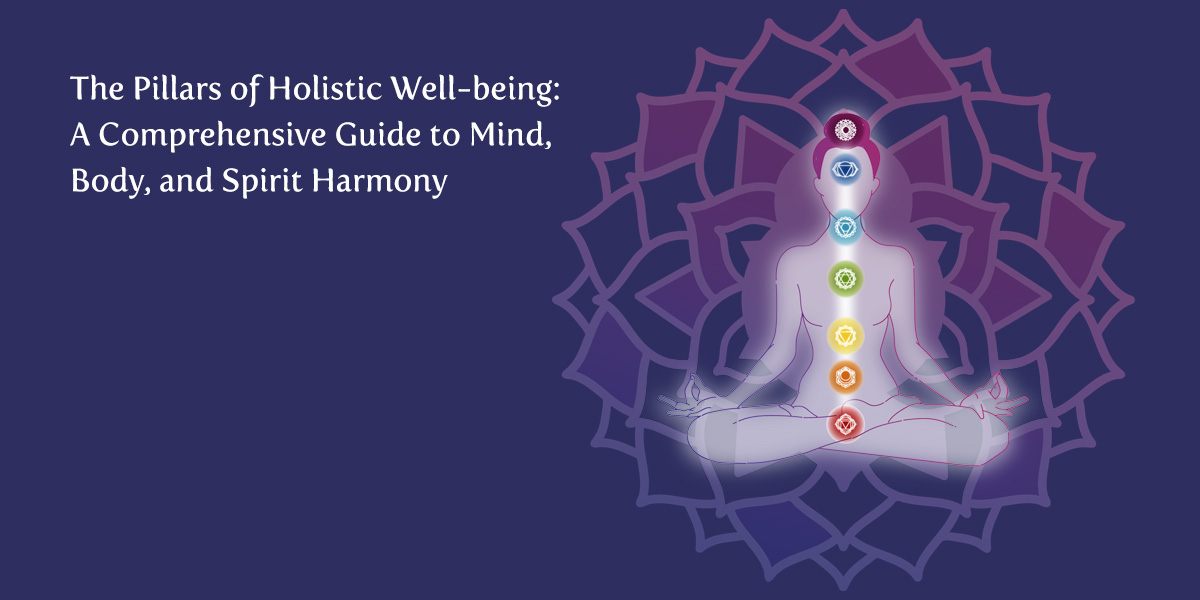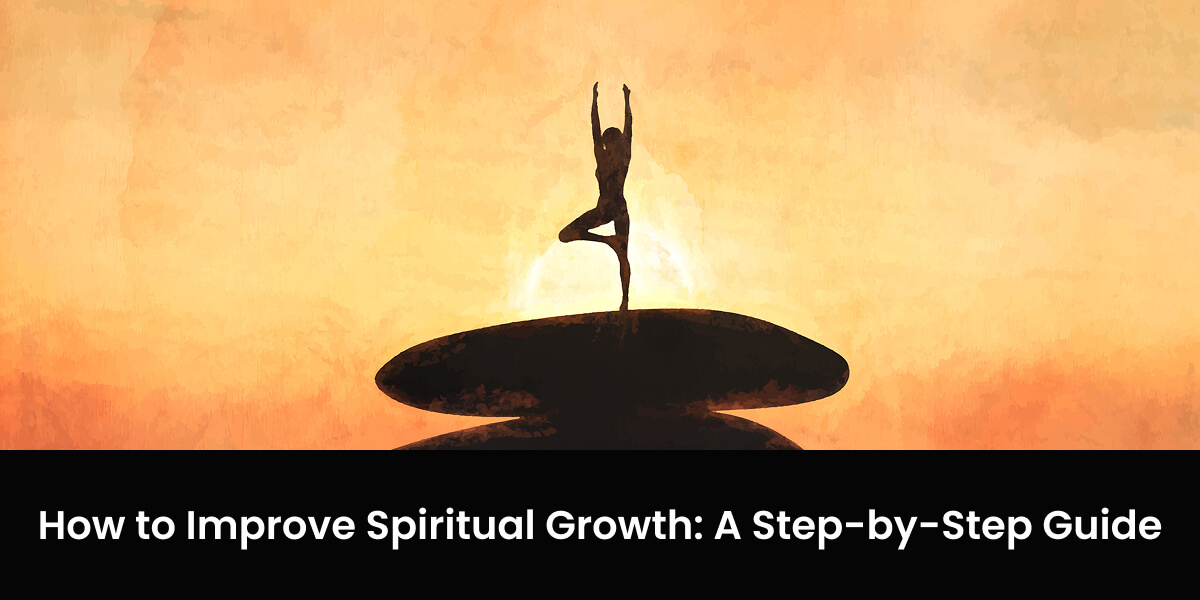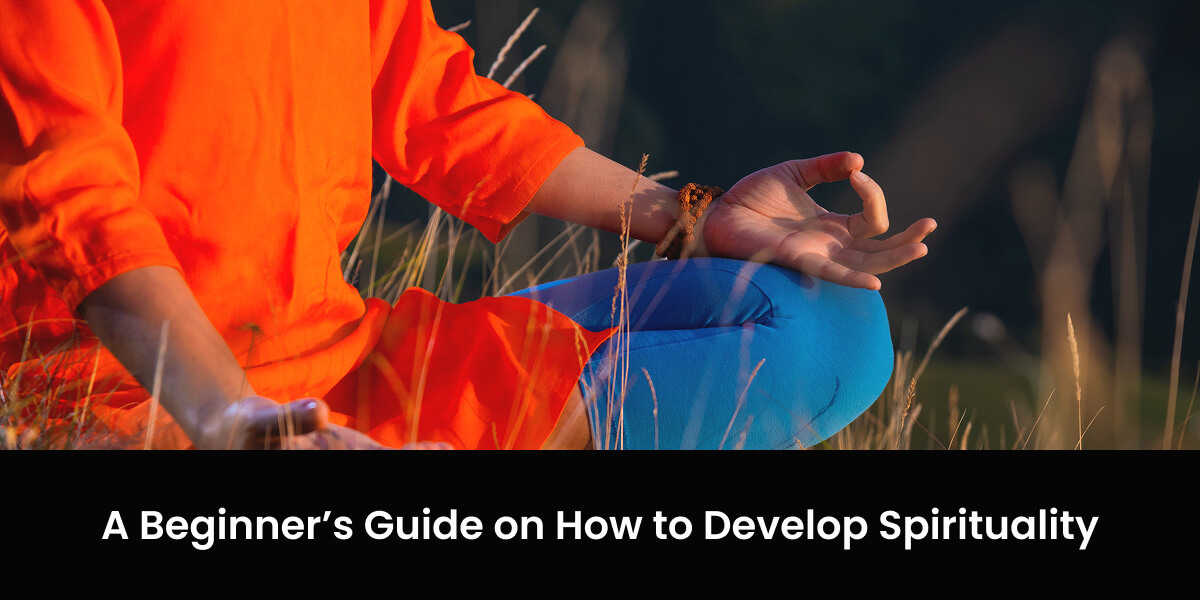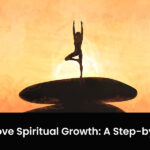In a fast-paced world where life’s demands seem to be ever-increasing, it’s crucial to take a step back and consider our well-being in a holistic manner. Holistic well-being goes beyond physical health; it encompasses the mind, body, and spirit, seeking to achieve harmony and balance in all aspects of life. In this comprehensive guide, we delve into the meaning of holistic well-being, its importance, and the pillars that support this vital journey.
What is Holistic Well-being?
Holistic well-being is an approach to health and life that considers the complete person. It acknowledges the intricate interplay between the mind, body, and spirit and seeks to nurture a harmonious relationship among these elements. Rather than treating each aspect in isolation, holistic well-being recognizes that they are interconnected and interdependent.
In essence, holistic well-being is about achieving a state of balance and vitality in all dimensions of our lives. It involves self-awareness, self-care, and a commitment to ongoing growth and development.
Importance of Holistic Well-being
The importance of holistic well-being cannot be overstated in our fast-paced and often stressful world. Holistic well-being encompasses the integration of the mind, body, and spirit, recognizing their interconnectedness and striving for harmony among these three essential facets of our existence.
Here are some key reasons why holistic well-being is of paramount importance:
1. Comprehensive Health: Holistic well-being ensures that we address all aspects of our health, not just physical fitness. It recognizes that our mental and emotional well-being are equally vital. Neglecting any of these aspects can lead to an imbalance that affects overall health and happiness.
2. Proactive Health Management: Holistic well-being fosters proactive health management. By caring for our minds, bodies, and spirits, we reduce the risk of illness and stress-related conditions. It encourages preventive measures rather than reacting to health issues after they have arisen.
3. Quality of Life: A holistic approach to well-being enhances our overall quality of life. When we are in harmony with our inner selves and the world around us, we experience greater joy, fulfillment, and a sense of purpose. Life becomes more meaningful and enjoyable.
4. Resilience: Holistic well-being equips us to better navigate life’s challenges. It builds resilience and coping mechanisms that help us endure difficult times and bounce back from setbacks. When the mind, body, and spirit are in harmony, we are better prepared to face adversity.
5. Self-Discovery and Personal Growth: Holistic well-being encourages self-discovery and personal growth. It prompts us to explore our inner selves, values, and beliefs. Through self-reflection, learning, and growth, we develop a deeper understanding of ourselves and our place in the world.
6. Connection and Community: Holistic well-being often involves building connections with others who share similar values and goals. It fosters a sense of community and belonging, which can provide crucial support and a sense of unity. Connecting with like-minded individuals can be a powerful source of encouragement and shared experiences.
7. Mindfulness and Present Moment Awareness: Holistic well-being emphasizes mindfulness and being fully present in the moment. This practice allows us to savor the simple joys of life, reduce stress, and gain a deeper appreciation for the world around us. Mindfulness is a tool for cultivating contentment and reducing anxiety.
8. Empowerment: Holistic well-being empowers individuals to take control of their health and happiness. It encourages self-care practices, self-empowerment, and personal responsibility for well-being. This empowerment can lead to a greater sense of autonomy and confidence in one’s life choices.
9. Preventive Health Care: Focusing on holistic well-being helps us recognize and address health issues early on. It encourages regular check-ups, mental health assessments, and lifestyle choices that prioritize well-being, reducing the likelihood of serious health problems in the future.
10. Longevity: Studies suggest that holistic well-being practices, such as stress reduction and a balanced lifestyle, can contribute to longevity. By promoting overall health and reducing the risk of chronic diseases, holistic well-being supports a longer and more fulfilling life.
In conclusion, holistic well-being is not just a luxury or an optional pursuit; it is a fundamental aspect of living a healthy, fulfilling life. By addressing the mind, body, and spirit, we create a sense of harmony and balance that leads to a life rich in quality, resilience, and self-awareness. It empowers individuals to navigate the challenges of the modern world and to cherish the beauty and opportunities it offers.
The Pillars of Holistic Well-being
Holistic well-being comprises three essential pillars, each representing a fundamental aspect of our existence. These pillars work in harmony to create a balanced and fulfilling life. Let’s delve into each of them:
1. The Mind Pillar:
The mind is the epicenter of our thoughts, emotions, and beliefs. The mental pillar of holistic well-being involves nurturing a healthy and resilient mind. It includes practices and habits that promote mental wellness, emotional balance, and cognitive growth:
Mindfulness and Meditation: Practicing mindfulness and meditation can help calm the mind, reduce stress, and enhance self-awareness.
Positive Self-Talk: Cultivating positive self-talk and self-compassion is vital for building a healthy self-image and emotional well-being.
Learning and Growth: Engaging in continuous learning, whether through formal education or self-study, promotes cognitive growth and personal development.
Stress Management: Developing effective stress management strategies, such as relaxation techniques or time management, is crucial for mental well-being.
2. The Body Pillar:
The body pillar focuses on physical health and well-being. It encompasses practices and habits that promote physical vitality, strength, and longevity:
Regular Exercise: Engaging in regular physical activity, whether through sports, fitness routines, or outdoor activities, is essential for maintaining physical health.
Nutrition and Diet: A balanced and nutritious diet provides the body with the essential nutrients it needs to function optimally.
Adequate Rest and Sleep: Ensuring sufficient and restful sleep is critical for body recovery, energy levels, and overall health.
Medical Check-ups: Regular medical check-ups and screenings help identify and address health issues before they become serious.
3. The Spirit Pillar:
The spirit pillar focuses on spiritual well-being, which doesn’t necessarily imply religious affiliation. It’s about finding meaning and purpose in life and connecting with something greater than oneself:
Cultivating Gratitude: Practicing gratitude and appreciating the simple joys of life can foster a sense of contentment and well-being.
Meditative Practices: Engaging in meditative and contemplative practices that promote a sense of inner peace and connection with the universe.
Finding Purpose: Discovering one’s purpose in life and aligning actions with that purpose can provide a profound sense of fulfillment.
Acts of Kindness: Acts of kindness and service to others can nourish the spirit and provide a sense of connection with the broader community.
These three pillars—mind, body, and spirit—form the foundation of holistic well-being. They are interconnected and interdependent, and nurturing each of them is essential to achieving a balanced and fulfilling life. When these pillars are in harmony, individuals experience increased resilience, joy, and a profound sense of well-being that extends to all areas of life.
Bringing it all Together: Achieving Holistic Harmony
Achieving holistic harmony, the seamless integration of the mind, body, and spirit, is a transformative journey that leads to a balanced and fulfilling life. It’s about recognizing the interconnectedness of these three essential pillars and nurturing them in unison. Here’s how to bring it all together and achieve holistic harmony:
1. Self-Awareness:
Begin your journey by developing self-awareness. Understand your own needs, strengths, and areas that require improvement. Self-awareness is the foundation upon which holistic harmony is built.
2. Integration:
Integrate the mind, body, and spirit into your daily routines and lifestyle. This may involve practices like:
Mindfulness: Incorporate mindfulness into your daily life. Be fully present in each moment, whether you’re eating a meal, working, or spending time with loved ones.
Physical Activity: Engage in regular physical activity that you enjoy. Exercise can be a form of self-expression and a means of connecting with your body.
Spiritual Practices: Explore spiritual practices that resonate with you, whether it’s meditation, prayer, or acts of kindness.
Balance: Strive for balance in all aspects of your life. Avoid extremes, such as overworking or overindulging, and embrace moderation in your activities and habits.
3. Lifelong Learning:
Invest in continuous learning and personal growth. Learning expands your horizons, keeps your mind active, and helps you adapt to new challenges. Read books, take courses, and seek experiences that broaden your understanding of the world.
4. Mindful Living:
Cultivate mindfulness in your everyday life. This practice involves being fully present and aware of your thoughts, emotions, and sensations. It allows you to savor the simple joys of life, reduce stress, and gain a deeper appreciation for the world around you.
Practice gratitude for the small blessings in your life, whether it’s a beautiful sunset, a kind gesture, or a loving relationship.
Avoid multitasking and focus on one task at a time, giving it your full attention.
Use your senses to connect with the present moment, whether it’s the taste of a delicious meal or the feel of the breeze on your skin during a walk.
5. Personal Growth:
View holistic well-being as a lifelong journey of personal growth. Embrace new challenges and opportunities for self-improvement. Take risks and push your boundaries to discover your true potential.
6. Supportive Community:
Seek support from a community of like-minded individuals who share your commitment to well-being. Surrounding yourself with a supportive community can provide encouragement, shared experiences, and a sense of unity.
7. Adaptability:
Be open to change and adaptation as your needs and circumstances evolve. Holistic well-being is a dynamic process, and what brings you balance today may evolve over time.
8. Self-Compassion:
Be kind and patient with yourself. Understand that setbacks and challenges are a part of life’s journey. Practice self-compassion and treat yourself with the same kindness you would offer a dear friend.
9. Regular Reflection:
Take time for regular reflection. Reflect on your holistic well-being journey, celebrate your successes, and make adjustments as needed. Regular check-ins with yourself can help you stay on the path of harmony.
10. Enjoy the Journey:
Remember that achieving holistic harmony is not just about reaching a destination; it’s about enjoying the journey. Embrace the process of self-discovery, growth, and self-fulfillment.
In conclusion, holistic harmony is a profound and transformative journey that leads to a balanced and fulfilling life. By nurturing the mind, body, and spirit and integrating them into your daily life, you create a harmonious existence that extends to all aspects of your life. It’s a lifelong commitment to well-being, personal growth, and self-awareness, and it empowers you to navigate life’s challenges with resilience, joy, and a profound sense of purpose.
Maintaining Holistic Well-being Over Time
Maintaining holistic well-being over time is a commitment to ongoing self-care and balance in the mind, body, and spirit. It’s not a one-time achievement but a lifelong journey. Here are some key strategies to help you sustain holistic well-being as a continuous practice:
1. Consistency is Key:
Consistency is at the heart of maintaining holistic well-being. Incorporate well-being practices into your daily routine. These may include meditation, exercise, mindfulness, and self-care rituals.
2. Adaptability and Flexibility:
Be open to adaptation and flexibility. Your well-being needs and circumstances can change over time, and it’s essential to adjust your practices accordingly. What worked for you in the past may need modification in the future.
3. Self-Compassion:
Be compassionate toward yourself. Understand that it’s okay to have setbacks and challenges. Avoid self-criticism and guilt. Treat yourself with the same kindness and understanding you would offer a dear friend.
4. Regular Check-ins:
Schedule regular check-ins with yourself. Reflect on your well-being journey, celebrate your successes, and assess areas that require attention. These check-ins can help you stay on track and make necessary adjustments.
5. Supportive Community:
Maintain connections with a supportive community of like-minded individuals who share your commitment to well-being. Lean on this community for encouragement and shared experiences.
6. Sustainable Practices:
Choose well-being practices that are sustainable in the long run. Avoid fad diets, extreme exercise regimens, or practices that are not conducive to lifelong well-being. Seek balance and moderation.
7. Lifelong Learning:
Continue to invest in your personal growth and learning. Lifelong learning keeps your mind active and engaged, helping you adapt to new challenges and opportunities.
8. Mindful Eating:
Practice mindful eating. Pay attention to what you eat and how it makes you feel. Choose a balanced and nutritious diet that supports your physical and mental health.
9. Regular Exercise:
Stay physically active. Find activities you enjoy, whether it’s walking, running, dancing, or sports. Exercise not only promotes physical health but also contributes to mental and emotional well-being.
10. Self-Care Rituals:
Prioritize self-care rituals. Whether it’s taking time for a warm bath, reading a book, or meditating, self-care rituals are vital for maintaining balance in your life.
11. Consistent Sleep Patterns:
Ensure you maintain consistent sleep patterns. Quality sleep is essential for both physical and mental well-being.
12. Preventive Health Care:
Continue with regular medical check-ups and screenings. Preventive health care can identify and address health issues before they become serious.
13. Resilience and Coping Mechanisms:
Foster resilience and coping mechanisms. These skills help you navigate life’s challenges and setbacks. Practices such as mindfulness and positive self-talk can strengthen your ability to cope.
14. Adapt to Life Changes:
Life is full of changes, and some may be unexpected. Whether it’s a career change, relationship shift, or other life events, adaptability and a well-being mindset can help you navigate these changes with resilience and grace.
In summary, maintaining holistic well-being over time is a commitment to lifelong well-being practices and a mindset that prioritizes balance in the mind, body, and spirit. It’s about creating sustainable practices, seeking support from a well-being community, and continuously nurturing your overall health and happiness. Holistic well-being is not just a destination; it’s a lifelong journey that empowers you to lead a fulfilling and balanced life.
Conclusion
Holistic well-being is the art of harmonizing the mind, body, and spirit to lead a fulfilling and balanced life. It’s a journey that requires self-awareness, commitment, and a deep understanding of the interconnectedness of these three pillars.
At Global Swasthyam, we believe that holistic well-being is the cornerstone of a vibrant, joyful life. It empowers individuals to navigate life’s challenges, savor its pleasures, and contribute positively to the world. By nurturing the mind, body, and spirit, we take proactive steps towards a healthier, happier, and more harmonious existence. As you embark on your personal journey of holistic well-being, remember that it’s a lifelong pursuit, and every small step counts









Post a Comment